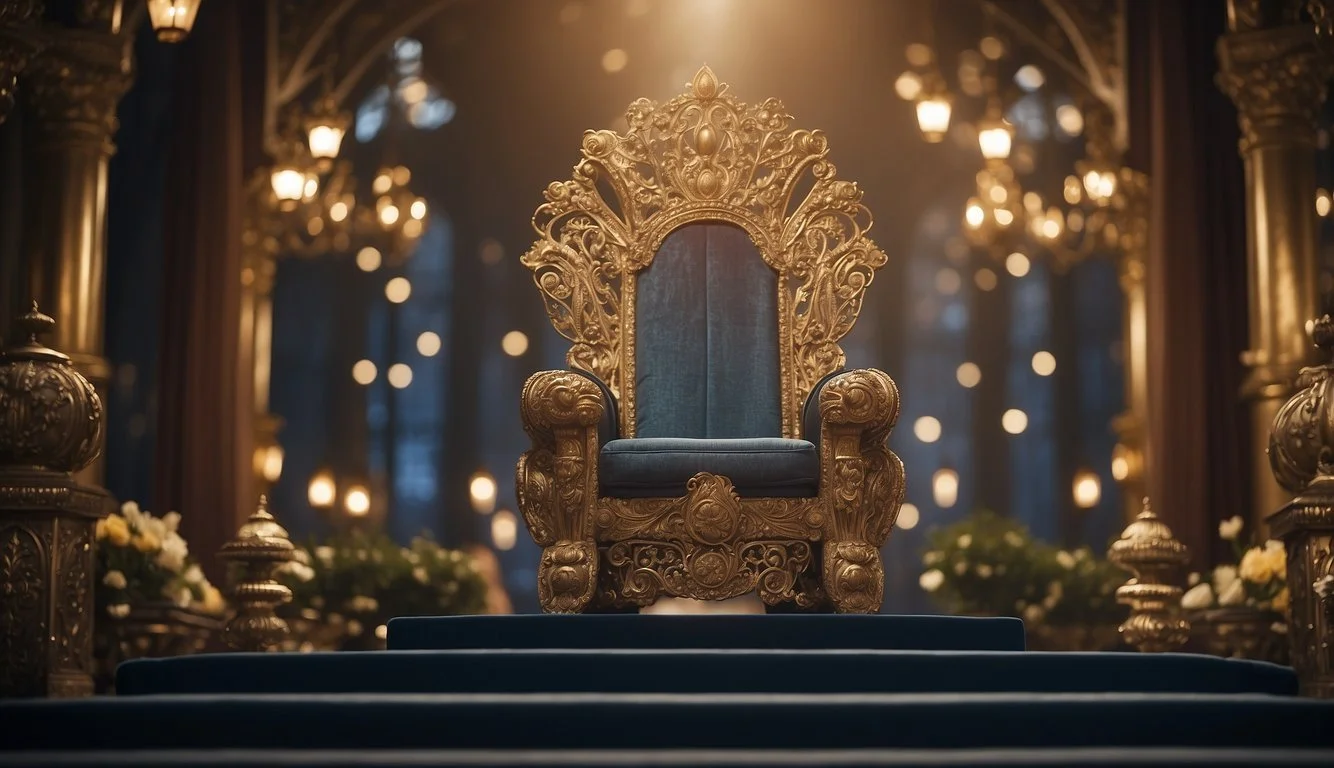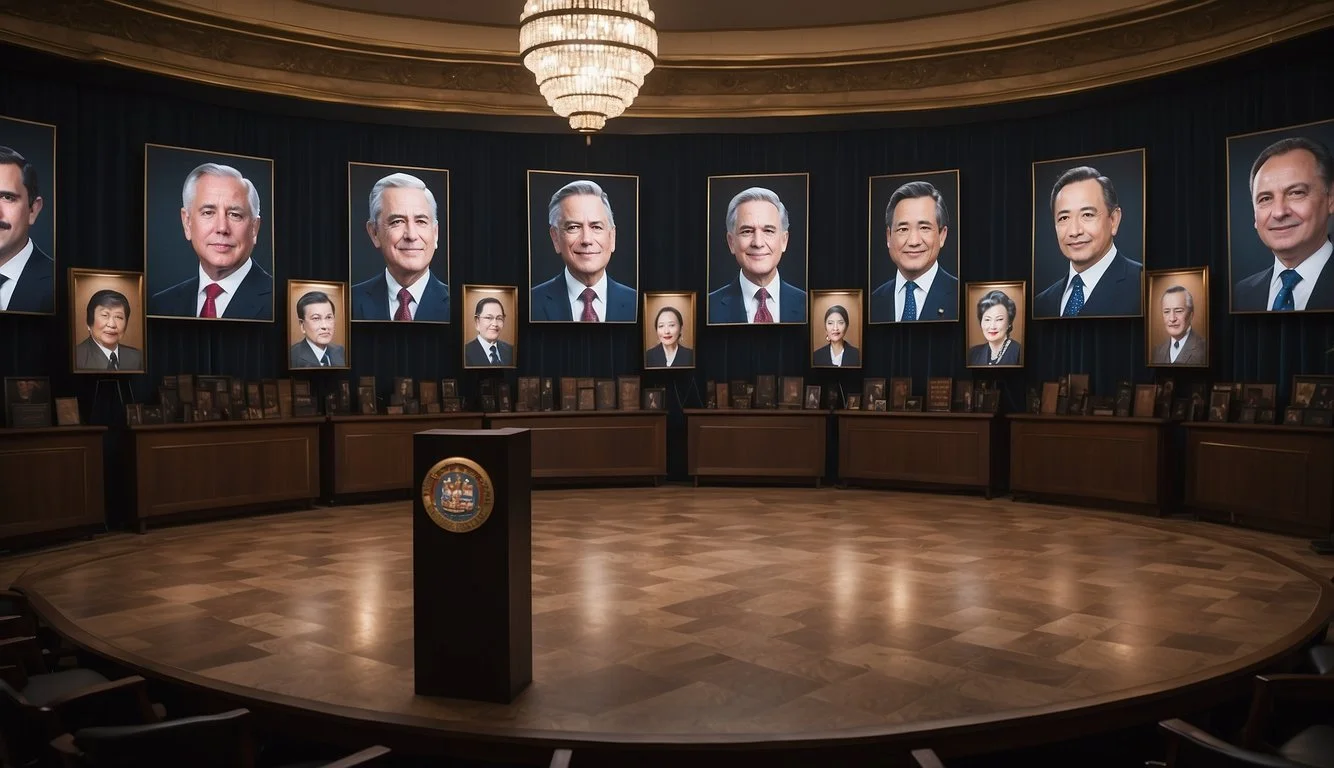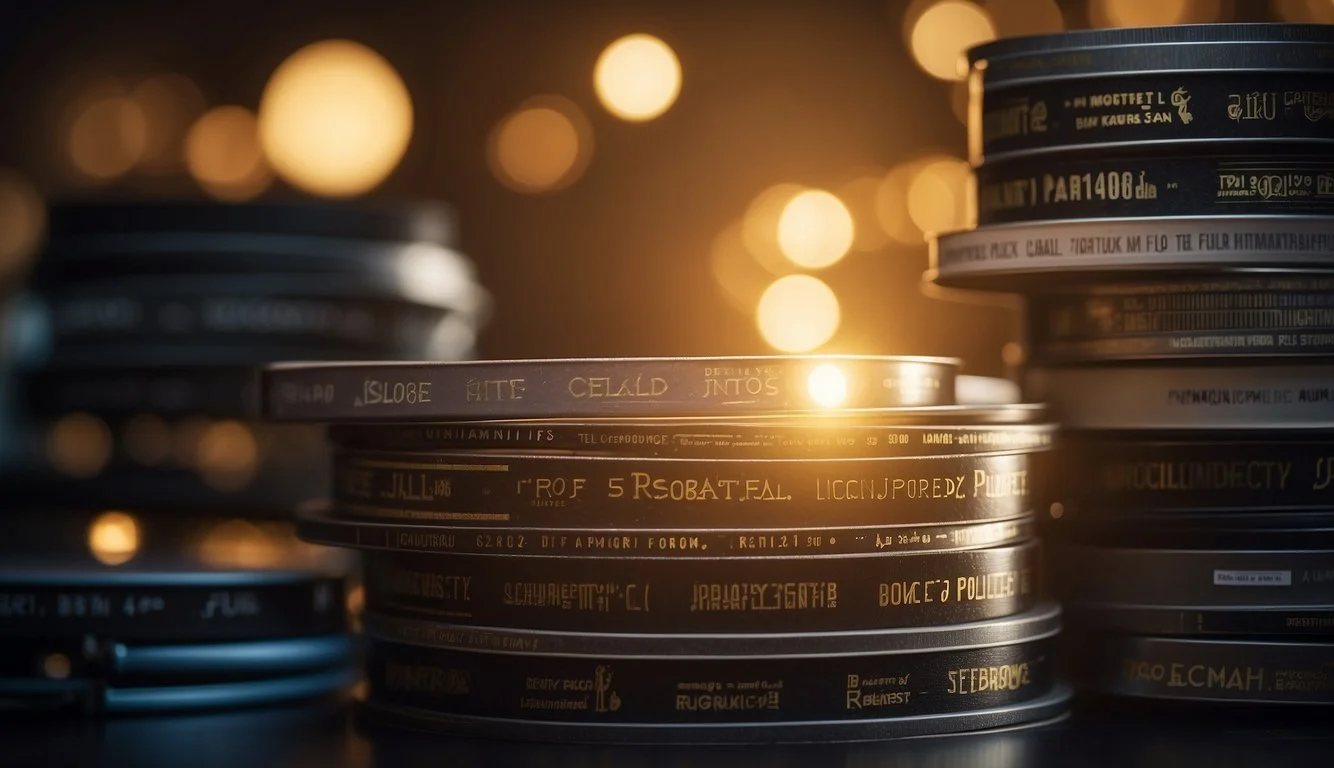Best Documentaries on the Lives of Iconic Political Leaders
Insightful Biographies and Historical Perspectives
Documentaries offer a unique and powerful lens through which we can explore the lives of iconic political leaders. These films often provide rare insights into the personal and professional journeys of figures who have shaped history. Understanding the trials, triumphs, and motivations of these leaders can bring a deeper appreciation of their impact on society.
These well-crafted documentaries blend historical footage, interviews, and expert commentary to create compelling narratives. By diving into these personal stories, viewers gain a nuanced perspective on the complexities of political leadership.
1) 13th by Ava DuVernay
Ava DuVernay's documentary "13th" offers a powerful examination of the United States' criminal justice system. It highlights the connections between the Thirteenth Amendment and mass incarceration. The film argues that the abolition of slavery led directly to a system that continues to oppress African Americans through incarceration.
"13th" premiered at the New York Film Festival and is notable for being the first documentary to open the festival. The title refers to the Thirteenth Amendment, which abolished slavery except as punishment for a crime. DuVernay presents evidence and interviews that demonstrate how this exception has been exploited.
The documentary weaves history with contemporary issues, showing the impact of the prison-industrial complex on people of color. It includes insights from scholars, activists, and politicians. Their perspectives provide a well-rounded view on how the criminal justice system maintains racial inequalities.
The film is highly regarded for its thorough research and compelling narrative. It not only educates viewers about historical events but also encourages them to reflect on current societal structures. "13th" is a critical piece of work that invites dialogue on justice, race, and reform.
2) Lincoln by Steven Spielberg
Directed by Steven Spielberg, "Lincoln" is a notable cinematic portrayal of Abraham Lincoln's presidency. Starring Daniel Day-Lewis, the film focuses on Lincoln's efforts to pass the Thirteenth Amendment in the House of Representatives.
Spielberg's direction emphasizes the political intricacies and personal challenges faced by Lincoln. This approach offers viewers a detailed look at both the public and private struggles of the 16th President of the United States.
Daniel Day-Lewis delivers a compelling performance, bringing depth to Lincoln's character. His portrayal earned him an Academy Award for Best Actor. The film also features a strong supporting cast, including Sally Field and Tommy Lee Jones.
"Lincoln" stands out for its historically grounded yet engaging narrative. The movie blends factual accuracy with dramatic storytelling, making it accessible to a broad audience.
Screenwriter Tony Kushner's dialogue and screenplay draw from history and literature, enhancing the film's authenticity. The meticulous attention to detail in the dialogue and settings helps to transport viewers to the Civil War era.
The production design and cinematography further elevate the film. Each scene is crafted to reflect the period accurately, contributing to the movie's immersive experience.
3) Mandela: Long Walk to Freedom by Justin Chadwick
Mandela: Long Walk to Freedom, directed by Justin Chadwick, is a notable biographical film released in 2013.
This movie draws on Nelson Mandela's 1994 autobiography and captures his life journey from his rural childhood to his election as South Africa's first black president.
Idris Elba stars as Mandela, delivering a powerful and nuanced performance.
The film addresses critical moments in Mandela's life, including his time as a lawyer and activist, his imprisonment for 27 years, and his eventual role in dismantling apartheid.
Scenes depict not just his political achievements but also his personal struggles, giving viewers a comprehensive look into his character and legacy.
Naomie Harris portrays Winnie Mandela, illustrating the complex relationship between Nelson and his wife amidst the political turmoil.
The direction by Chadwick and the screenplay by William Nicholson contribute to creating a detailed and engaging narrative.
Though dramatized for cinematic effect, the film remains respectful and rooted in Mandela's true story. The visual and emotional storytelling has resonated with audiences worldwide.
4) The Roosevelts: An Intimate History by Ken Burns
"The Roosevelts: An Intimate History" is a comprehensive documentary miniseries by Ken Burns. Spanning seven episodes, the series focuses on the lives of Theodore, Franklin, and Eleanor Roosevelt. Each figure is examined through a detailed narrative, highlighting their unique contributions to American politics and society.
The documentary provides a balanced portrayal of each Roosevelt, delving into their personal and political lives. Theodore Roosevelt, known for his progressive policies and exuberant personality, is framed within the context of his time as the 26th President of the United States.
Franklin D. Roosevelt’s tenure as the 32nd President is also thoroughly explored. The series covers his leadership during the Great Depression and World War II, showcasing his resilient and adaptive policies. Eleanor Roosevelt's role as a First Lady and her advocacy for human rights are spotlighted, underlining her long-lasting influence.
Ken Burns blends archival footage, photographs, and expert commentary to create an immersive viewing experience. The series not only reflects the political achievements of the Roosevelts but also their personal tribulations. Narrated by Peter Coyote with contributions from historians like Doris Kearns Goodwin, the documentary offers a seamless and insightful exploration of the Roosevelt legacy.
5) Reagan by Eugene Jarecki
"Reagan" by Eugene Jarecki is a documentary that examines the multifaceted life and career of Ronald Reagan.
The film portrays Reagan's evolution from a B-movie actor to a top-tier political figure.
Jarecki delves into Reagan's terms as the Governor of California and later as the 40th President of the United States.
Interviewing key figures, including Reagan's sons Michael and Ron Reagan, the documentary provides various perspectives.
Jarecki’s film features both Reagan's achievements and the controversies during his presidency, offering a balanced portrayal of his legacy.
Through archival footage, the documentary contextualizes Reagan's influence on American politics and society.
"Reagan" premiered on HBO and was well-received for its thorough research and nuanced narrative.
This documentary is essential viewing for those interested in understanding Reagan's impact on modern history.
6) Bobby Kennedy for President by Dawn Porter
"Bobby Kennedy for President," directed by Dawn Porter, is a compelling four-part documentary series available on Netflix. It meticulously examines the life and political career of Robert F. Kennedy, often referred to as Bobby Kennedy. The series uses a wealth of archival footage to paint a vivid picture of his journey.
Throughout the documentary, viewers get an inside look at Kennedy's role as Attorney General and his work in civil rights. It highlights his 1968 presidential campaign, showcasing his ability to connect with a wide range of Americans.
The documentary also explores the lasting impact of his political and social ideals. Porter's thorough exploration allows viewers to grasp Kennedy’s vision for America and the challenges he faced. The series underlines his passion for justice and equality, making it clear why he remains an iconic figure in U.S. politics.
The personal and emotional dimensions of Kennedy's life are also scrutinized in this series. His relationships, both political and personal, are presented honestly, providing a rounded portrayal of the man behind the public image. This balanced perspective enhances the documentary's authenticity and depth.
"Bobby Kennedy for President" is both an educational and poignant watch. It serves as a significant piece for anyone interested in American political history and the enduring influence of Robert F. Kennedy.
7) The Iron Lady by Phyllida Lloyd
"The Iron Lady," directed by Phyllida Lloyd, is a biographical drama focusing on the life of Margaret Thatcher.
Meryl Streep delivers a powerful performance as Thatcher, capturing her ascent in British politics and her tenure as the longest-serving Prime Minister of the 20th century.
The film depicts Thatcher's journey from a grocer's daughter to a formidable political figure. It also portrays her personal struggles, particularly her battle with dementia in her later years.
The narrative structure alternates between Thatcher's political triumphs and her reflections in old age, providing a poignant look at her legacy.
The screenplay, written by Abi Morgan, utilizes flashbacks to shed light on key moments of Thatcher's life, balancing her public achievements with intimate personal experiences.
Supporting performances by Jim Broadbent and Susan Brown add depth, contributing to the film's rich portrayal of Thatcher's interactions and relationships.
"The Iron Lady" is notable for its emphasis on the human side of Thatcher, moving beyond her political persona to offer a more nuanced view. The film stands out for its ambition to blend the personal with the political in its portrayal of an iconic leader.
8) The Fog of War by Errol Morris
"The Fog of War" is a documentary directed by Errol Morris, released in 2003.
The film explores the life of Robert S. McNamara, who served as the U.S. Secretary of Defense during the Vietnam War. Through a series of interviews, McNamara reflects on his experiences and the complexities of modern warfare.
Morris uses archival footage, reenactments, and an original score by Philip Glass. This combination provides a gripping narrative that delves into the moral and ethical decisions made during times of conflict.
The film is structured around "Eleven Lessons" from McNamara's life, shedding light on his insights into the nature of war and peace.
"The Fog of War" won the Academy Award for Best Documentary Feature, cementing its reputation as a significant film in the genre. The documentary offers an insider's view of key historical events from the 20th century, influencing the public's understanding of war and its consequences.
9) Queen of the World by Matt Hill
Queen of the World, directed by Matt Hill, offers an in-depth look at Queen Elizabeth II's significant role on the global stage. This HBO documentary explores her influence within the Commonwealth and her unwavering dedication to her duties across decades.
The documentary sheds light on her stoic nature and profound impact. Filmmaker Matt Hill captures intimate moments and public appearances, providing a balanced perspective on her responsibilities.
Written and produced by Robert Hardman, Queen of the World features rare insights into the Queen's life. Viewers get an up-close view of her preparations and interactions with younger members of the Royal Family, reflecting the transition of responsibilities.
Streaming on HBO, the film offers exclusive behind-the-scenes footage. It portrays Queen Elizabeth not just as the UK's monarch but as a crucial figurehead of a 53-member Commonwealth.
Queen of the World stands out for its detailed portrayal and access to the Queen's private and public spheres. It remains a valuable resource for those interested in contemporary monarchy and international diplomacy.
10) The Death of Stalin by Armando Iannucci
"The Death of Stalin" is not a traditional documentary, but it offers a brilliant satirical take on the chaos following Stalin's death. Directed by Armando Iannucci, the film provides a darkly comedic look at the power struggle among Soviet leaders after Stalin's sudden death.
Armando Iannucci masterfully blends historical events with sharp humor. The film portrays the jockeying for power among figures like Nikita Khrushchev, played by Steve Buscemi, and Lavrenti Beria, portrayed by Simon Russell Beale.
Set in 1953, the film captures the atmosphere of fear and paranoia. It highlights the precarious position of those who sought to succeed Stalin, knowing that failure could lead to imprisonment or death. These elements make it as insightful as any documentary.
Although fictionalized for comedy, "The Death of Stalin" relies closely on historical facts. This blend of humor and historical detail makes it a compelling watch for anyone interested in the political machinations of the Soviet Union during one of its most turbulent periods.
Historical Context
Political documentaries about iconic leaders delve into their impact and the public's fascination with political history, providing valuable insights into pivotal events and figures.
Impact of Political Documentaries
Political documentaries are powerful tools for educating and influencing public opinion. They can bring historical events and figures to life, revealing the complexities and motivations behind important decisions. Films like “Mandela: The Living Legend” (2003) offer intimate glimpses into Nelson Mandela's life, enhancing understanding of his struggle against apartheid.
Documentaries serve as a form of visual history, preserving firsthand accounts and rare archival footage. For instance, documentaries on Winston Churchill use stunning archival footage to contextualize his leadership during World War II. These films can inspire, inform, and sometimes challenge viewers to re-evaluate historical narratives.
Popular Interest in Political History
There has been a growing interest among general audiences in political history, as reflected in the popularity of political documentaries. Titles like “13th” on Netflix engage viewers by connecting historical events to contemporary issues, such as the evolution of racial inequality in the United States.
Audiences are drawn to stories that explain current political climates through historical lenses. Documentaries like “American Factory” explore the intersection of politics and everyday life, showing global and local impacts of political decisions. This interest reflects a desire to understand the forces shaping the modern world by examining the past.
Tables, lists, and strong narratives within these films help in dissecting complex topics, making them accessible to a broad audience. This ongoing engagement highlights the role of political documentaries in educating and shaping public discourse.
Elements of Compelling Political Documentaries
Creating an impactful political documentary involves several critical elements, including the use of effective narrative techniques and ensuring authenticity and accuracy in the portrayal of events and figures. These components help maintain viewer engagement and credibility.
Narrative Techniques
Narrative techniques are crucial in shaping the story and keeping the audience engrossed. Chronological storytelling is one common method, where events are laid out in the order they occurred, helping viewers grasp the timeline.
Another effective technique is flashbacks, which can provide context and background to current events, deepening the viewer’s understanding.
Interviews with experts, witnesses, or direct participants add credibility and diverse perspectives to the narrative.
Visuals and archival footage are essential to bring historical events to life, creating a more immersive experience. Utilizing narration helps guide the audience through complex political landscapes.
Authenticity and Accuracy
Authenticity and accuracy are the bedrock of compelling political documentaries. Using verified sources and fact-checking ensures that the information presented is reliable and trustworthy.
Maintaining a balanced viewpoint is important to avoid bias and present multiple perspectives on issues.
Transparency about sources and methods used to gather information helps build trust with the audience. Incorporating direct quotes, official documents, and authentic footage enhances the documentary’s credibility.
Strive for emotional honesty, where the true human experiences behind political events are highlighted, making the documentary resonate on a personal level.
By focusing on these elements, filmmakers can create documentaries that not only inform but also engage and inspire their audiences.
Influence of Documentaries on Modern Politics
Documentaries have become a powerful medium in modern politics, shaping public perception and providing valuable educational insights. They present compelling narratives and uncover hidden truths.
Shaping Public Perception
Documentaries shape how the public views political figures and events. For instance, Winter on Fire: Ukraine's Fight for Freedom reveals the Ukrainian people's struggles for freedom. This film offers a perspective that may not be covered by mainstream media.
By providing in-depth interviews and archival footage, these documentaries help viewers form more nuanced opinions. They showcase real-life events and personal stories, offering a humanized view of the political landscape. Documentaries like Journeys with George gain intimate access to political campaigns, presenting an insider’s perspective that can sway public opinion.
Furthermore, films like The Secret Government: The Constitution in Crisis highlight government operations rarely seen by the public, fostering a sense of transparency. Through such exposure, documentaries can mobilize public sentiment and even influence political outcomes.
Educational Value
Political documentaries serve an educational purpose by detailing historical and contemporary issues. American Factory delves into global factory politics, teaching viewers about economic and political impacts on working-class lives. This educational angle informs citizens about complex issues in an accessible format.
Academic and public discussions often use these films as educational tools. They present facts and narratives through interviews with experts and eye-witnesses, enriching the audience's understanding.
For example, 13th explores the constitutional amendment that ended slavery and its implications today. This provides essential historical context that enhances societal awareness.
In educational settings, these films stimulate critical thinking and discussions, making politics more relatable and comprehensible. By elucidating complicated topics, political documentaries educate the public in ways regular news cannot achieve.





